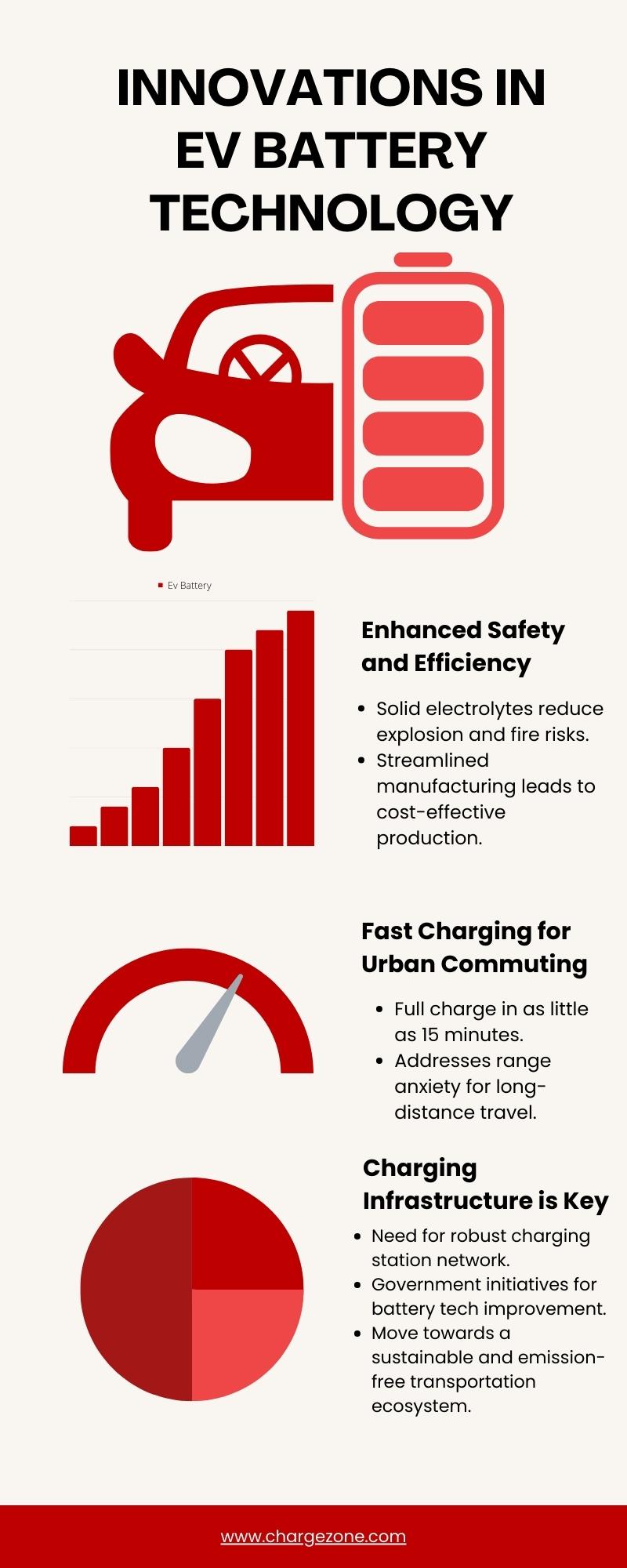
The day when you have can fully charge your EV in as little as 15 minutes may not be that far. Dash charging could be making it's way to the world of EVs and its all down to one 'solid' switch.
The Question:
The demand of EVs sales is rising as much as 4 times in 2022 as compared to 2021, the need for innovating to meet the market's ask of fast charging and concerns around range enhancement is now at the forefront. The requirement for robust charging infrastructure is now rearing its head.
Most consumers have now warmed up to the idea of purchasing EVs as an alternative to conventional combustion engines. However, the concerns around range on a single charge, fast charging and sustainability of batteries continue. The solutions, however, are not far.
The Shift to Solid State Batteries:
Despite EVs being a paradigm shift from conventional engines, we are only at the beginning of this journey. EVs are operating on the cutting edge of technology but their development also requires an ecosystem around which could pose to be some bumps in their progress.
The latest development, the Solid State Battery, has now entered the fray to replace the commonly used Lithium-ion batteries and it makes a great case. By upgrading the liquid electrolyte in a Lithium-ion battery with a solid electrolyte, they offer much higher energy density and potentially a quicker charging time.
1. Increased Energy Density:
Energy Density in simple terms is the amount of energy that a battery can store in its size or weight. With the latest use of alkali based anodes in solid state batteries and increased stability, solid state batteries can now account for as much as 3 times the energy densityA higher energy density can see EVs leapfrog consumer expectations. With the ratio of the size and weight of a battery in comparison to it's energy storage becoming more and more favorable, the range of EVs is bound to increase manifold solving some of the key issues faced by the consumer base.
With the capacity for batteries on the rise, the charging ecosystem will also be at the forefront and presents an opportunity for investors looking to take advantage of the EV switch
2. Ease of Manufacturing:
Solid-state batteries offer a more streamlined manufacturing process compared to traditional lithium-ion batteries. The solid state battery eliminates the need for various stages of the manufacturing process such as filling and conditioning. These stages, while integral in cases of a liquid electrolyte, are completely suspended for a solid state electrolyte. This results in substantially reduced production times, lower overall expenses, and enhanced manufacturing efficiency.
This could result in faster manufacturing of EVs and lead to a higher adoption of EV technology due to higher output being possible at an industrial scale.
3. Higher Safety Rating:
The solid electrolyte offers a more stable form for power output, a solid state battery, would thus reduce the risk of a battery exploding or catching on fire. An area of concern for several users, the solid state battery offers a clear solution rendering them a much safer option for EVs.
With safer batteries, the charging infrastructure too will need to see a upgrade requiring trusted brands to be present in the EV charging space. This presents an ideal opportunity for consumers to capitalize on an emerging market by setting up charging stations of their own.
4. Fast Charging:
The solid state batteries, due to higher conductivity, allow the battery to charge much faster than conventional Lithium-Ion batteries. With urban commuting requiring pace on priority, the switch to solid state batteries could allow cars to complete a full charge in as little as 15 minutes.
However, the adoption of this technology will require that the charging stations too are outfitted with the requisite technology. An offering that ChargeZone too is keen to capitalize on.
5. Range Enhancement:
On current battery capacity, electric vehicles are a great option for urban commuting. Lithium-Ion batteries on average have a range of 320 km - 380 km on a single charge. While consumers may consider that it is sufficient for intra-city travel for several days, EV users are faced with a dilemma while planning for long distance journeys where charging stations may not be present at regular intervals. While charging station infrastructure is still being developed at a rapid pace, solid storage batteries can offer a long term solution by simply optimizing that range manifold.
Investment in Innovation:
However, even with the much needed boost in range for EVs the need for a more robust charging station infrastructure remains paramount. As off 2023, India had only 8,700 public charging stations compared to 72,079 petrol pumps showing a clear need to develop charging infrastructure. However, a push merely on quantity will not be enough. The quality of the cells too will have to see some development.
The Government has also formed the National Programme on Advances Chemistry Cell Battery Storage to improve the technology. This appears to be a push to help India meet its targets on the sales of 30% electric vehicles in the private sector by 2030.
Solid State batteries are the clear next step in EV battery technology allowing for a greater energy density and easier storage for reducing their weight on vehicles.
The trend towards sustainable solutions and zero emission vehicles is a great sign tending towards a sustainable transportation ecosystem that must be beneficial to all. And with EV transportation on the rise, the adjacent ecosystem including charging stations too will require a great amount of development. A mission that we here at ChargeZone remain greatly committed to.
